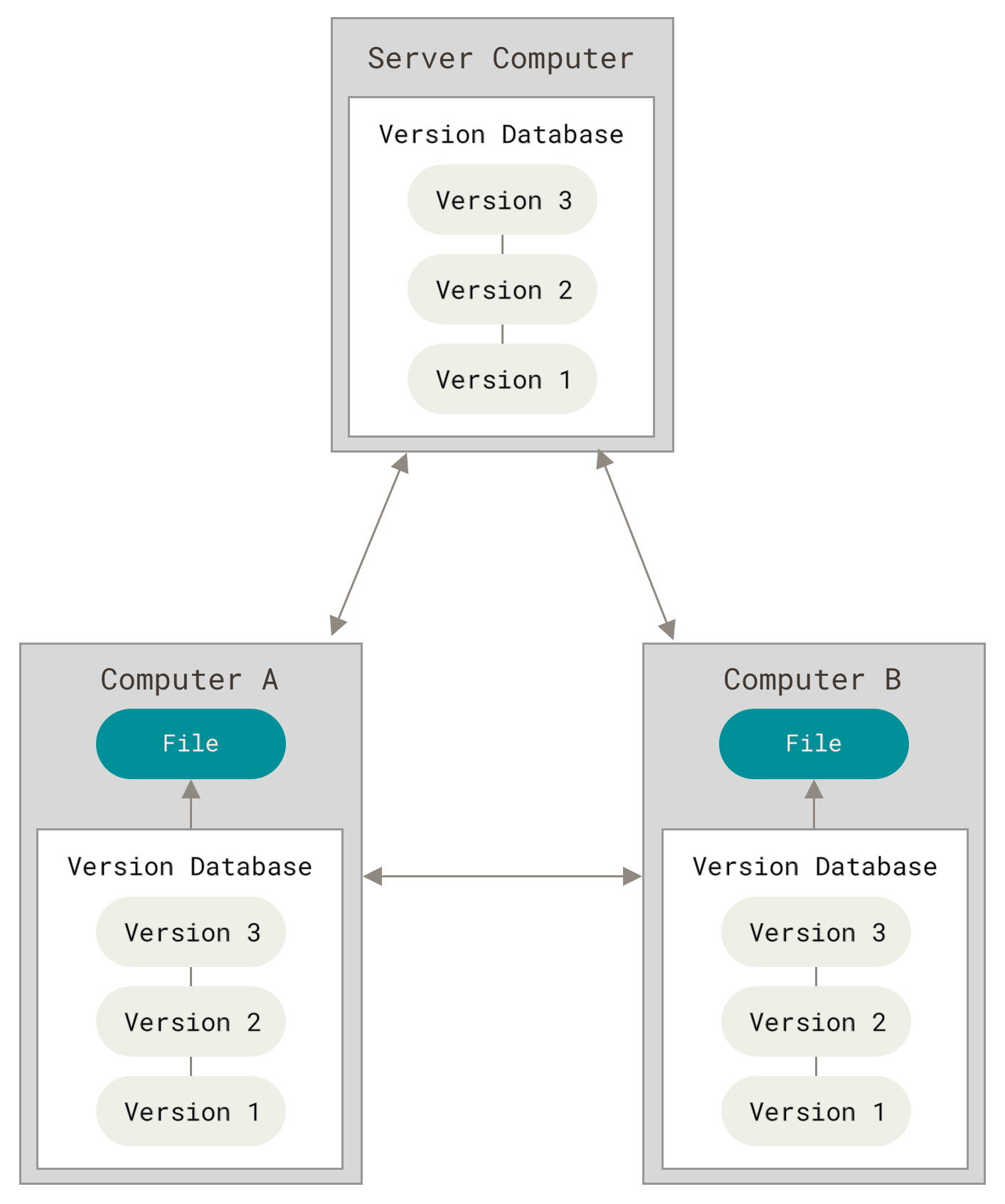-
Notifications
You must be signed in to change notification settings - Fork 3
Hasan Ramazan Yurt Git Research
Git is a distributed version control or management system. What a version control system is will be explained later in the research. Git is used to track changes in the source code of any sofware project. It is designed to ensure coordination between programmers that study for the same project. Basically Git has a directory that isa full-fledged repository with complete history and full version-tracking abilities in every computer. It is independent from network connection.
A version control system is a codebase tracking system that includes full history of a project. Due to version control system every developer in the project can see the project, history, and version in their development area. This provides automatic management, branching and merging. Thanks to this system, working with the same project on different computer become very fast and easy. Also, the ability to working offline is improved.
Here is an image that show distributed control system mechanism:
- Checkout: It is the term to explain switching branches in a repository.
- Clone: A clone is a copy of a repository or the action of copying a repository.
- Fetch: By using fetch, one can download and copy a branch’s files to his/her workstation.
- Merge: Takes changes from one branch and merges it to other brach.
- Push: Updates a remote branch with the commits made to the current branch.
- Pull: If someone has changed code on a separate branch of a project and wants it to be reviewed to add to the master branch, that someone can put in a pull request.
-
git configTell Git who you are -
git initCreate a new local repository -
git cloneCheck out a repository -
git addAdd one or more files to staging (index) -
git commitCommit changes -
git pushSend changes to the master branch of your remote repository -
git statusList the files you've changed and those you still need to add or commit -
git remoteConnect to a remote repository -
git branchList all the branches in your repo, and also tell you what branch you're currently in -
git checkoutCreate a new branch and switch to it -
git pullFetch and merge changes on the remote server to your working directory
- https://en.wikipedia.org/wiki/Git
- https://en.wikipedia.org/wiki/Distributed_version_control
- https://git-scm.com/book/en/v2/Getting-Started-About-Version-Control
- https://confluence.atlassian.com/bitbucketserver/basic-git-commands-776639767.html
- https://linuxacademy.com/blog/linux/git-terms-explained/

- Requirements
- Workspace Creation Scenario
- Application to a Workspace Scenario
- Follow Mechanism Scenario
- Design Documents
- Plan Documents
- Milestone Reports
- API Documentation
- Manuals
- Burak Ömür
- Halil Umut Özdemir
- Hasan Ramazan Yurt
- Öykü Yılmaz (Communicator)
- Ahmet Dadak
- Ertuğrul Bülbül
- Alperen Divriklioğlu
- Burhan Can Akkuş
- Hüseyin Can Bölükbaş
- Hilal Demir
- Umutcan Uvut
- Orkan Akisu
- Frontend Meeting #7 (19.01.2021)
- Frontend Meeting #6 (12.01.2021)
- Android Meeting #5 (08.01.2021)
- Frontend Meeting #5 (05.01.2021)
- Backend Meeting #6 (30.12.2020)
- Meeting #26 (29.12.2020)
- Meeting #25 (28.12.2020)
- Backend Meeting #5 (23.12.2020)
- Frontend Meeting #4 (21.12.2020)
- Android Meeting #4 (18.12.2020)
- Backend Meeting #4 (16.12.2020)
- Meeting #24 (15.12.2020)
- Meeting #23 (09.12.2020)
- Frontend Meeting #3 (10.12.2020)
- Android Meeting #3 (09.12.2020)
- Backend Meeting #3 (09.12.2020)
- Frontend Meeting #2 (08.12.2020)
- Android Meeting #2 (07.12.2020)
- Frontend Meeting #1 (03.12.2020)
- Android Meeting #1 (02.12.2020)
- Backend Meeting #2 (02.12.2020)
- Meeting #22 (25.11.2020)
- Meeting #21 (21.11.2020)
- Backend Meeting #1 (18.11.2020)
- Meeting #20 (17.11.2020)
- Meeting #19 (10.11.2020)
- Meeting #18 (30.10.2020)
- Meeting #17 (27.10.2020)
- Meeting #16 (24.05.2020)
- Meeting #15 (13.05.2020)
- Meeting #14 (10.05.2020)
- Meeting #13 (07.05.2020)
- Meeting #12 (30.04.2020)
- Meeting #11 (23.04.2020)
- Meeting #10 (17.04.2020)
- Meeting #9 (16.04.2020)
- Meeting #8 (09.04.2020)
- Meeting #7 (22.03.2020)
- Meeting #6 (12.03.2020)
- Meeting #5 (05.03.2020)
- Meeting #4 (28.02.2020)
- Customer Meeting #1 (28.02.2020)
- Meeting #3 (27.02.2020)
- Meeting #2 (20.02.2020)
- Meeting #1 (13.02.2020)
- Meeting Notes Template


